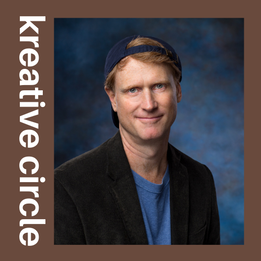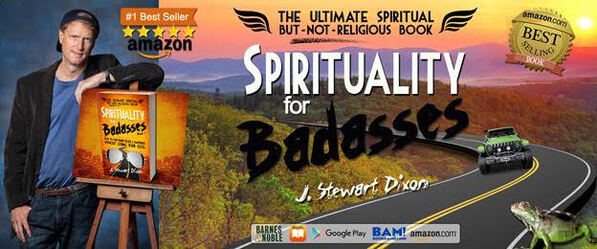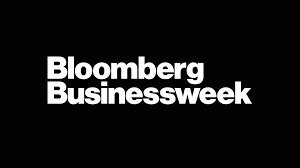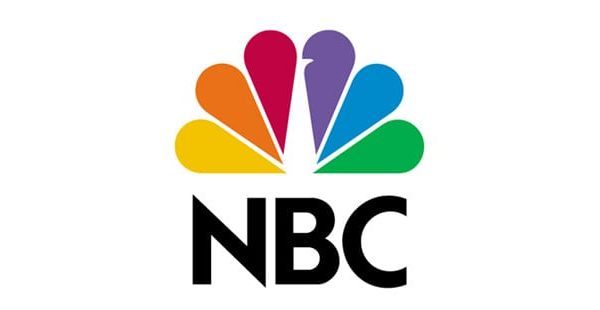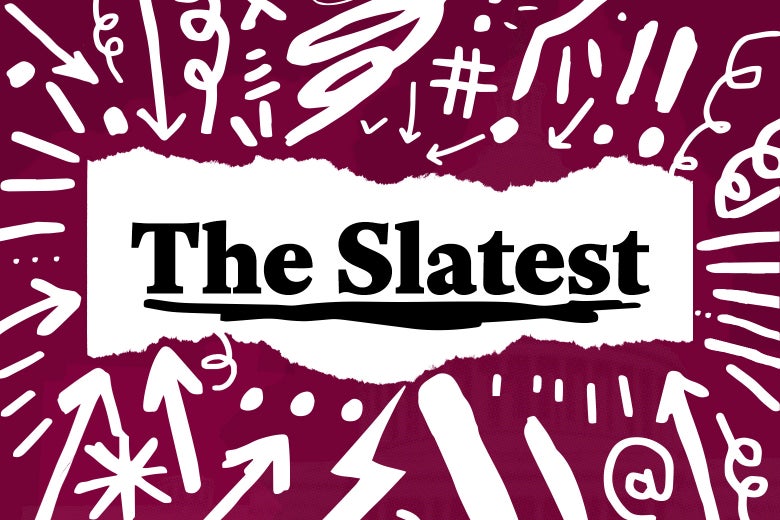Jeff, Welcome to Kreative Circle! As the author of "Spirituality for Badasses: How to Find Inner Peace Without Losing Your Cool", what motivated you to finally write a book that blossomed from at least twenty nine years of experience working with unorthodox teachers to discover your best self?
Spirituality for Badasses is my second book. The first was written ten years ago. I’ve had multiple false starts on a second book over the years. I’d write a chapter or two and then resign it to the dust bin. Spirituality for Badasses came about after a frustrating attempt to make a more conventional version of my work fly. It didn’t fly. It flopped. So, in frustration, I said screw it, and wrote the first few chapters of Spirituality for Badasses in one sitting. I gave those chapters away for free and it immediately flew.
Your life experience includes history with drugs and alcohol, conventional therapy and pharmaceutical drugs. When and how did these influences enter your life path?
College. Typical pot smoking, beer drinking hijinks.
What was the hardest challenge you faced when breaking up with these substances in your journey?
Who said I broke up with them? I still drink tequila, whiskey or beer while barbequing on the back deck. And I smoke pot occasionally at night in my hot-tub.
What were you seeking during this phase of your life? (Were you seeking a higher source, or were you a rebel without a cause?)
My use of drugs and alcohol was and is mostly recreational. Every once in a blue moon I’d have some sort of quasi-slightly deluded insight from pot.
How did you perceive spirituality before you embraced it as a lifestyle? What diverse modes of spiritual healing did you try before committing to mediums that worked for you?
With healthy skepticism. Then, while in college, I had several major kundalini/out-of-body experiences that proved to me there was something to it. I practiced kundalini yoga with 3HO foundation for 3-4 years in my early twenties. I was a big fan of The Monroe Institute as well (Robert Monroe wrote the famous new age book Journeys Out of the Body)
The book "Spirituality for Badasses" infuses self-help and humor to deliver healing to global audiences effected by the pandemic. Some perceive humor to be a double edged sword -- it can nurture the human spirit and for some it's a defense mechanism that helps them survive in a world that can be cruel at times.
As an engineer and global citizen, how do you view humor in your life?
I agree. Humor can be used to avoid or embrace deeper issues. I use humor in SFB as a disarming mechanism. The humor disarms any preconceived ideas the reader may have about what spirituality should look, feel or sound like. It’s much easier to charm someone, than to argue with or convince them. First the lollipop- then the medicine.
What advice do you have for readers who can benefit from lightening up a bit?
Laughter is good medicine. Notice where you are when you laugh- in the present moment. In your body. In your heart. Happy.
Many people are a 'work in progress'. What were the initial steps taken to slowly detach yourself from the fleeting man-made influences (drugs, alcohol, Prozac) that weren't helping you in the long run? What was the turning point that encouraged you to pursue a new solution to continue your quest for "seeking" from the universe?
Direct spiritual experience that provides an insight, change or big aha moment makes drugs and alcohol seem like doggy treats. Turning point for me- having multiple out-of-body experiences.
Jeff, you've tried conventional therapy. What was your experience like and did you learn anything? Given your experience, do you have thoughts on why such therapy works for some individuals whereas others struggle with this specific mode of healing?
My experience of traditional therapy: Dry, heady and lacking in depth. Once I switched to nondual-zen satsang teachers and energy workers I found what I was looking for. I believe it’s hit or miss- Kinda like dating. I think there are both awesome and shitty therapists, satsang teachers and energy workers out there. Getting stuck or struggling means you just haven’t found the right one yet.
As the author of "Spirituality for Badasses", you've referenced moments where you were 'too smart for your own good'. Can you share a few examples when you were too smart for your own good that it resulted in attracting more complications in your life?
Ego/personality/identity is too smart for its own good and caused much suffering throughout my life. My whole spiritual path adventure was about seeing, accepting and transforming ego. When ego shifted from the pilot's seat to the co-pilot's seat- everything changed for the better.
Is there a way for people to tame their ego so their 'smartness' doesn't rob them of a chance of living an authentic and abundant life?
Mindfulness does this. It’s much better to be aware than to be smart. But it takes some humility and usually some ass kicking or suffering before we decide to let awareness take precedence over smartness.
Spirituality is a tool that can transform lives on local and global levels.
What emotions did you encounter day to day as these shifts were taking place within you?
I was a pro at dark-night-of-the-soul shit: anxiety attacks, fear of death, existential annihilation fears, bodily trembling, sweating and contracting. I swam in a sea of monsters before finding the calm warm bay.
How were you able to entertain these healthy transformations without ‘losing your cool and compromising your libido’? 😊
When you peer through to the ultimate nondual nature of existence- then all experience equalizes. There is no difference between sex, an ice-cream cone or Nirvakalpa samadhi. So abstaining from these things is pointless. Ergo- you can still be the unique, funny, artistic, quirky, strange, quiet, shy (however it manifests) badass cool you.
What are nonduality-advaita-zen-unorthodox teachers? What role do they play in your life?
Teachers like Eckhart Tolle, Adyashanti, Andrew Cohen, Saniel Bonder, Gangaji, Adi-Da, Osho and more. They played an immense role in my life. Most 20-somethings have a little black book filled with the phone numbers of girlfriends or boyfriends. My little black book had spiritual teachers in it.
Spirituality helps people recognize parts of themselves that can benefit from healing. What part of yourself needed to be healed, helped and restored to ensure that you live your best life aligned with a higher purpose?
I suffered from existential depression, anxiety attacks and feelings of separation. When this crap went away permanently I raised my hand and said: Cool. I’m okay now. Thank you, universe.
Jeff, what spiritual practices help you maintain a state of mindfulness amidst the uncertain times we live in today?
I don’t practice. I’m it. What’s the point of practicing to get to a place that I’m already in? So being it is my practice. “I am that”- Nisargadatta Maharaj 😊 And based on my 52 years on this forlorn little planet…times are always uncertain.
When writing "Spirituality for Badasses", what did you learn about the writing process? Do you have any tips for writers wanting to launch their first book?
I love writing. I go deep into the Zen happy spot zone when writing. Tips for a book launch: hire a professional. I did. Money well spent.
What does 'badass' mean in your life? When did you finally discover your badass and how has it improved your quality of life?
Badass means being courageous. A spiritual badass channels his or her courage into the spiritual adventure of knowing thyself. When I finally discovered my own spiritual badass true nature it ended my depression, anxiety attacks and feelings of separation. That improved my life, to say the least.
What guidance do you have for people wanting to improve or change the circumstances in their life?
Read Spirituality for Badasses.
Please share with audiences how people can support your work.
Private sessions, coaching or courses: www.spiritualityforbadasses.com.
Buy the book @ Amazon here.
Spirituality for Badasses is my second book. The first was written ten years ago. I’ve had multiple false starts on a second book over the years. I’d write a chapter or two and then resign it to the dust bin. Spirituality for Badasses came about after a frustrating attempt to make a more conventional version of my work fly. It didn’t fly. It flopped. So, in frustration, I said screw it, and wrote the first few chapters of Spirituality for Badasses in one sitting. I gave those chapters away for free and it immediately flew.
Your life experience includes history with drugs and alcohol, conventional therapy and pharmaceutical drugs. When and how did these influences enter your life path?
College. Typical pot smoking, beer drinking hijinks.
What was the hardest challenge you faced when breaking up with these substances in your journey?
Who said I broke up with them? I still drink tequila, whiskey or beer while barbequing on the back deck. And I smoke pot occasionally at night in my hot-tub.
What were you seeking during this phase of your life? (Were you seeking a higher source, or were you a rebel without a cause?)
My use of drugs and alcohol was and is mostly recreational. Every once in a blue moon I’d have some sort of quasi-slightly deluded insight from pot.
How did you perceive spirituality before you embraced it as a lifestyle? What diverse modes of spiritual healing did you try before committing to mediums that worked for you?
With healthy skepticism. Then, while in college, I had several major kundalini/out-of-body experiences that proved to me there was something to it. I practiced kundalini yoga with 3HO foundation for 3-4 years in my early twenties. I was a big fan of The Monroe Institute as well (Robert Monroe wrote the famous new age book Journeys Out of the Body)
The book "Spirituality for Badasses" infuses self-help and humor to deliver healing to global audiences effected by the pandemic. Some perceive humor to be a double edged sword -- it can nurture the human spirit and for some it's a defense mechanism that helps them survive in a world that can be cruel at times.
As an engineer and global citizen, how do you view humor in your life?
I agree. Humor can be used to avoid or embrace deeper issues. I use humor in SFB as a disarming mechanism. The humor disarms any preconceived ideas the reader may have about what spirituality should look, feel or sound like. It’s much easier to charm someone, than to argue with or convince them. First the lollipop- then the medicine.
What advice do you have for readers who can benefit from lightening up a bit?
Laughter is good medicine. Notice where you are when you laugh- in the present moment. In your body. In your heart. Happy.
Many people are a 'work in progress'. What were the initial steps taken to slowly detach yourself from the fleeting man-made influences (drugs, alcohol, Prozac) that weren't helping you in the long run? What was the turning point that encouraged you to pursue a new solution to continue your quest for "seeking" from the universe?
Direct spiritual experience that provides an insight, change or big aha moment makes drugs and alcohol seem like doggy treats. Turning point for me- having multiple out-of-body experiences.
Jeff, you've tried conventional therapy. What was your experience like and did you learn anything? Given your experience, do you have thoughts on why such therapy works for some individuals whereas others struggle with this specific mode of healing?
My experience of traditional therapy: Dry, heady and lacking in depth. Once I switched to nondual-zen satsang teachers and energy workers I found what I was looking for. I believe it’s hit or miss- Kinda like dating. I think there are both awesome and shitty therapists, satsang teachers and energy workers out there. Getting stuck or struggling means you just haven’t found the right one yet.
As the author of "Spirituality for Badasses", you've referenced moments where you were 'too smart for your own good'. Can you share a few examples when you were too smart for your own good that it resulted in attracting more complications in your life?
Ego/personality/identity is too smart for its own good and caused much suffering throughout my life. My whole spiritual path adventure was about seeing, accepting and transforming ego. When ego shifted from the pilot's seat to the co-pilot's seat- everything changed for the better.
Is there a way for people to tame their ego so their 'smartness' doesn't rob them of a chance of living an authentic and abundant life?
Mindfulness does this. It’s much better to be aware than to be smart. But it takes some humility and usually some ass kicking or suffering before we decide to let awareness take precedence over smartness.
Spirituality is a tool that can transform lives on local and global levels.
What emotions did you encounter day to day as these shifts were taking place within you?
I was a pro at dark-night-of-the-soul shit: anxiety attacks, fear of death, existential annihilation fears, bodily trembling, sweating and contracting. I swam in a sea of monsters before finding the calm warm bay.
How were you able to entertain these healthy transformations without ‘losing your cool and compromising your libido’? 😊
When you peer through to the ultimate nondual nature of existence- then all experience equalizes. There is no difference between sex, an ice-cream cone or Nirvakalpa samadhi. So abstaining from these things is pointless. Ergo- you can still be the unique, funny, artistic, quirky, strange, quiet, shy (however it manifests) badass cool you.
What are nonduality-advaita-zen-unorthodox teachers? What role do they play in your life?
Teachers like Eckhart Tolle, Adyashanti, Andrew Cohen, Saniel Bonder, Gangaji, Adi-Da, Osho and more. They played an immense role in my life. Most 20-somethings have a little black book filled with the phone numbers of girlfriends or boyfriends. My little black book had spiritual teachers in it.
Spirituality helps people recognize parts of themselves that can benefit from healing. What part of yourself needed to be healed, helped and restored to ensure that you live your best life aligned with a higher purpose?
I suffered from existential depression, anxiety attacks and feelings of separation. When this crap went away permanently I raised my hand and said: Cool. I’m okay now. Thank you, universe.
Jeff, what spiritual practices help you maintain a state of mindfulness amidst the uncertain times we live in today?
I don’t practice. I’m it. What’s the point of practicing to get to a place that I’m already in? So being it is my practice. “I am that”- Nisargadatta Maharaj 😊 And based on my 52 years on this forlorn little planet…times are always uncertain.
When writing "Spirituality for Badasses", what did you learn about the writing process? Do you have any tips for writers wanting to launch their first book?
I love writing. I go deep into the Zen happy spot zone when writing. Tips for a book launch: hire a professional. I did. Money well spent.
What does 'badass' mean in your life? When did you finally discover your badass and how has it improved your quality of life?
Badass means being courageous. A spiritual badass channels his or her courage into the spiritual adventure of knowing thyself. When I finally discovered my own spiritual badass true nature it ended my depression, anxiety attacks and feelings of separation. That improved my life, to say the least.
What guidance do you have for people wanting to improve or change the circumstances in their life?
Read Spirituality for Badasses.
Please share with audiences how people can support your work.
Private sessions, coaching or courses: www.spiritualityforbadasses.com.
Buy the book @ Amazon here.
